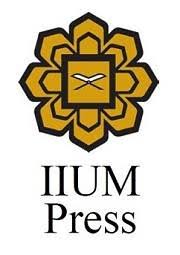Islam siyaset düșüncesini uygulamak: Katip Çelebi ve onun dönemi
Applying the Islamic Political Thought: Hacı Halife and His Time
DOI:
https://doi.org/10.31436/alburhn.v4i2.195Keywords:
Katip Çelebi, Düstûrû’l Amel, Islahat Çalışmaları, Siyaset, Mizânu’l HakAbstract
The 17th century was seen by the researchers as the beginning of the decline of the Ottoman Empire. The economic situation and social phenomena that declined with the lost wars caused changes in the Ottoman style of administration and politics. In this period, we can speak of social changes, uprisings due to political-economic discontent, and changes in the bureaucracy tradition. With the general acceptance of historians, the dates 1603-56 are accepted as a period of chaos or anarchy in terms of Ottoman history. Ottoman high intellectuals did not remain indifferent to these negativities in the state. In the face of this situation, they wrote individual treatises and highlighted the problems of the state and turned towards reform studies. Kâtip Çelebi, one of the most prolific and well-known scholars of the 17th century Ottoman, did not remain silent to the situation and wrote works. This paper explores Katip Çelebi’s Düstûru’l Amel, taking into consideration the intellectual biography of the author and his sources of knowledge, his political philosophy, and his understanding of reform. Essentially, the paper aims to explain Katip Çelebi’s political philosophy by addressing the Ottoman reform studies and the reform thought in the luminary’s view. Düstûru’l Amel, which he wrote to establish a political philosophy will be examined as the main subject of the article.
Downloads
References
Çelebi, Katip: Dustûru’l Amel, Istanbul, Büyüyen Ay Yayınları, 2016
Çelebi, Katip: Mizanü'l Hakk fi İhtiyari'l-Ehakk, Haz.: Süleyman Uludağ, Istanbul, Dergah Yayınları, 2016
Karpat, Kemal H: Osmanlı Modernleşmesi, Çev.: Akile Zorlu Durukan, Kaan Durukan, Istanbul, İmge Yayınevi, 2008
Şentürk, Recep: Ed. İbn Haldun, Istanbul, İz Yayınclık, 2015
Sunar, Lütfi & Kavak Özgür: Ed. İslam Siyaset Düşüncesi, Istanbul, İlem Kitaplığı, 2018
Bağdatlı, Özlem: İslam siyaset düşüncesinin kavramsal temelleri, Istanbul, Dergah Yayınları, 2018
İnalcık, Halil: Devleti Aliyye Üzerine Araştırmalar C2, Istanbul, Türkiye İş Bankası Yayınları, 2019
Çelebi, Katip: Keşfü’z-Zunûn An Esâmi’l-Kütûbi ve’l-Fünûn, Istanbul, Târih Vakfı Yurt Yayınları, 2009
Gökyay, Orhan Şâik: Kâtip Çelebi Hayâtı ve Eserleri Hakkında İncelemeler, Istanbul, Türk Târih Kurumu Basımevi, 1985
Ülken, Hilmi Ziyâ: Kâtip Çelebi ve Fikir Hayâtımız: Kâtip Çelebi Hayâtı ve Eserleri Hakkında İncelemeler, Istanbul, Türk Târih Kurumu Basımevi, 1991
Hafen,Gottfried: Bir Osmanlı Coğrafyacısı İşbaşında: Katib Çelebi’nin Cihannüma’sı ve Düşünce Dünyası, Çev: Hilal Görgün, Istanbul, Küre Yayınları, 2016
Downloads
Published
How to Cite
Issue
Section
License
In general, reusing or reproducing substantial portions of al-Burhān content requires permission. This includes the use of text, figures, tables, multimedia content, and any other material published in any issues of al-Burhān Journal of Qur'an and Sunnah Studies. For some instances, al-Burhān may make its content freely viewable; however, such material may require permission for reuse. To seek permission, please contact the editorial.









